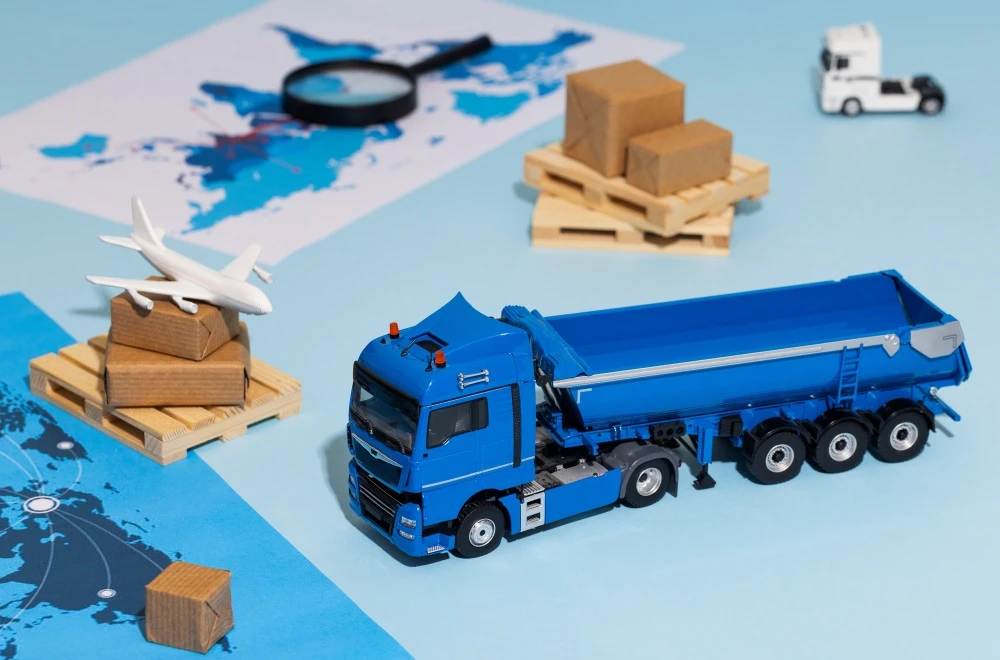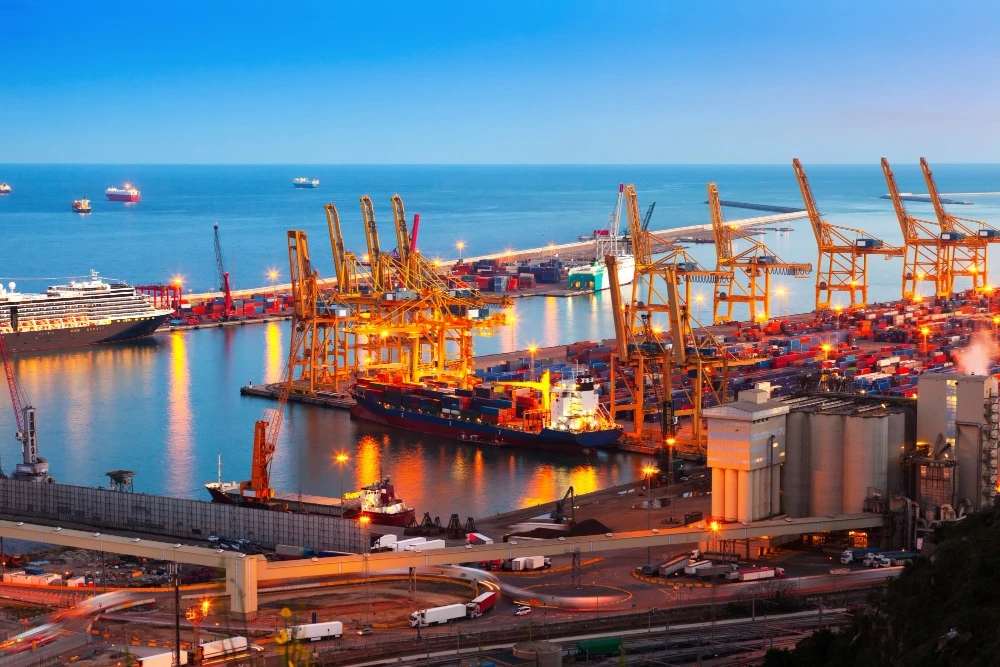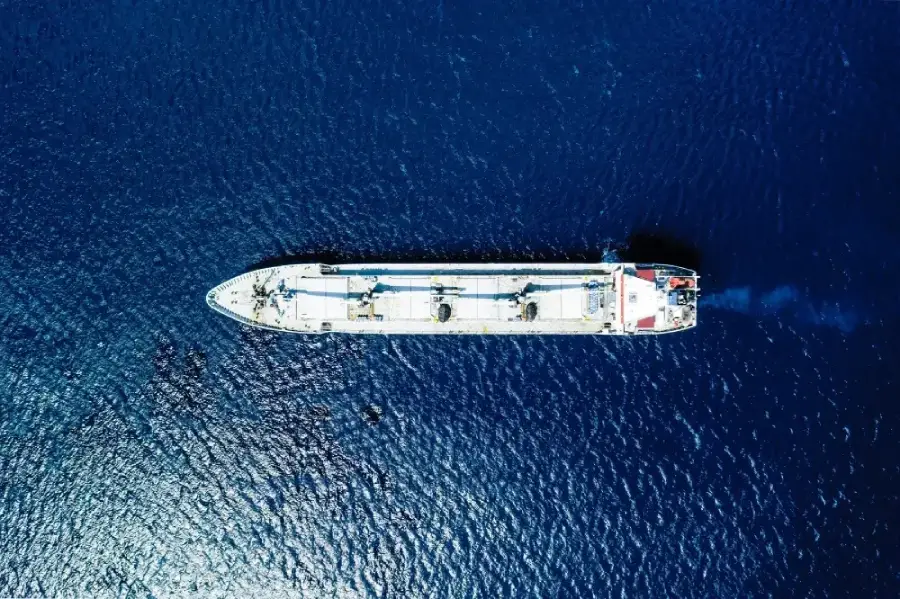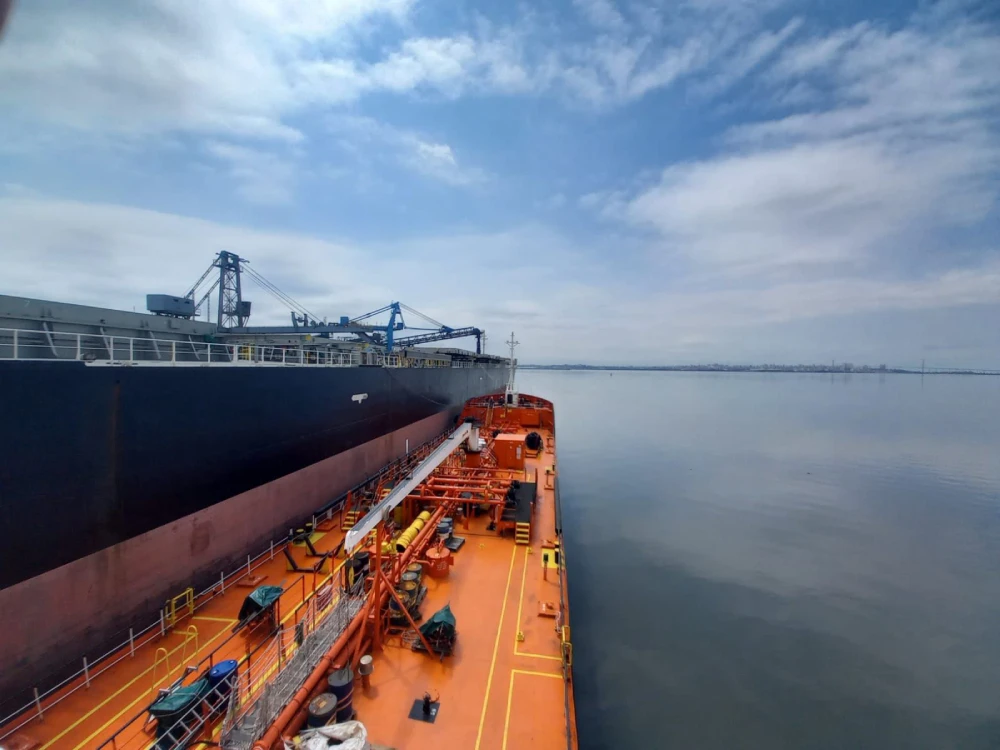Marine Shipping offers its services within ordinary dry cargo and oil and gas chartering, ships operation and terminal handling. With our global network, we can always find a suitable solution for your transport. Chartering from coaster vessels up to VLCC for any bulk and break bulk materials worldwide Cargo handling and storage services in ports of loading and discharge Client oriented Charter Party negotiations and supervision Operational and post fixture assistance to our Clients Freight indications for any inquiries.
Marin Shipping Services
-

Different Mode of transports
Transportation as a Service (TaaS) is a revolutionary concept that is transforming the way we move around. It refers to the provision of transportation services on an on-demand basis, similar to how we access other cloud-based services like Netflix or Spotify. With TaaS, users can seamlessly switch between different modes of transportation, such as cars, bikes, scooters, and public transit, all through a single platform. This approach offers several advantages over traditional transportation methods, including increased convenience, flexibility, and cost-effectiveness.
Types of Transportation:
There are various types of TaaS models available, each catering to specific needs and preferences. Here are some of the most common ones:
- Ride-hailing services: These services, such as Uber and Lyft, connect passengers with drivers in real-time, providing convenient and affordable on-demand transportation.
- Car-sharing services: These services, such as Car2Go and Zipcar, allow users to rent cars by the hour or day, promoting carpooling and reducing the need for personal car ownership.
- Bike-sharing services: These services, such as LimeBike and Citi Bike, provide bicycles for short-term rentals, enabling eco-friendly and flexible transportation options.
- Scooter-sharing services: These services, such as Bird and Skip, offer electric scooters for rent, providing a fun and convenient way to get around cities.
- Public transit ticketing and navigation: Apps like Moovit and Citymapper provide real-time information about bus, train, and subway schedules, fares, and routes, making public transit more accessible and user-friendly.
Benefits of Transportation:
TaaS offers numerous benefits over traditional transportation methods:
- Convenience: Users can easily access and switch between different modes of transportation through a single app, eliminating the need for multiple transportation providers.
- Flexibility: TaaS provides on-demand transportation, allowing users to travel when and where they need, without the constraints of fixed schedules or routes.
- Cost-effectiveness: TaaS can be more cost-effective than owning a car, as users only pay for the transportation they use. Additionally, TaaS can reduce traffic congestion and parking expenses in cities.
- Environmental sustainability: TaaS promotes the use of shared transportation and public transit, reducing the number of vehicles on the road and contributing to a cleaner environment.
- Accessibility: TaaS can make transportation more accessible to people with disabilities, providing them with more options for getting around.
Future of Transportation:
TaaS is still in its early stages of development, but it holds immense potential for the future of transportation. As technology advances and consumer demand grows, TaaS is expected to become even more integrated into our daily lives. We can envision a future where TaaS seamlessly connects us to various modes of transportation, optimizing our journeys and making our cities more livable and sustainable.
-

Vessel Maintenance & Dry Docking
Vessel maintenance includes a wide range of activities, such as:
- Hull inspection and repair: The hull is the outer shell of a vessel, and it is constantly exposed to the elements. This can lead to corrosion, erosion, and other damage. Hull inspections are important for identifying and repairing these problems.
- Machinery repair and maintenance: Ships and boats have a variety of machinery, including engines, generators, pumps, and propellers. This machinery needs to be regularly inspected, maintained, and repaired to ensure that it is operating safely and efficiently.
- Electrical system maintenance: The electrical system on a ship or boat is responsible for powering a variety of equipment, including navigation lights, communication systems, and safety devices. This system needs to be regularly inspected and maintained to prevent electrical fires and other hazards.
- Painting and coating: Ships and boats need to be painted regularly to protect them from corrosion and other damage. The type of paint used will vary depending on the type of vessel and its operating environment.
Dry Docking
Dry docking is a process of removing a vessel from the water and placing it in a dry dock, which is a large, watertight basin. This allows for the inspection and repair of the hull, rudder, propeller, and other underwater components of the vessel.
The dry docking process typically involves the following steps:
- Preparing the vessel: The vessel is prepared for dry docking by removing any loose gear or equipment that could be damaged during the process. The hull is also cleaned to remove any marine growth or debris.
- Pumping out the water: The water is pumped out of the dry dock, exposing the vessel’s hull.
- Inspecting the hull: The hull is inspected for any damage or corrosion. If any damage is found, it will be repaired before the vessel is put back into service.
- Repairing the underwater components: The rudder, propeller, and other underwater components of the vessel are inspected and repaired as needed.
- Refilling the dry dock: The dry dock is refilled with water, and the vessel is floated out.
Benefits of Vessel Maintenance & Dry Docking
There are many benefits to regular vessel maintenance and dry docking, including:
- Improved safety: Regular maintenance can help to prevent breakdowns and accidents.
- Increased reliability: Well-maintained vessels are less likely to suffer from breakdowns, which can disrupt operations and lead to financial losses.
- Extended lifespan: Properly maintained vessels can last for many years.
- Reduced environmental impact: Well-maintained vessels are more fuel-efficient and produce fewer emissions.
Frequency of Vessel Maintenance & Dry Docking
The frequency of vessel maintenance and dry docking will vary depending on the type of vessel, its operating environment, and its usage. However, a good rule of thumb is to have a vessel inspected every year and dry docked every two to five years.
Choosing a Vessel Maintenance & Dry Docking Provider
When choosing a vessel maintenance and dry docking provider, it is important to consider the following factors:
- Experience: The provider should have experience working with the type of vessel you own.
- Reputation: The provider should have a good reputation for quality work.
- Location: The provider should be located in a convenient location.
- Cost: The provider should offer competitive prices.
By following these tips, you can ensure that your vessel is properly maintained and safe to operate.
-

Vessel Chartering
Introduction
Vessel chartering is a crucial aspect of the maritime industry, enabling the movement of goods across vast distances. Shipowners and charterers engage in chartering agreements to facilitate the transportation of cargo. Two primary types of chartering arrangements are prevalent in the industry: time charter and voyage charter.
Time Charter
A time charter involves the lease of a vessel for a specified period, typically ranging from months to years. The charterer assumes control over the vessel’s operations, including cargo selection, voyage planning, and fuel costs. The shipowner retains responsibility for vessel maintenance, crew management, and insurance.
Benefits of Time Charter:
-
Flexibility: Time charters offer flexibility in cargo selection and voyage planning, catering to fluctuating market demands.
-
Fixed Costs: Charterers enjoy predictable costs throughout the charter period, mitigating the impact of fuel price fluctuations.
-
Access to Specialized Vessels: Time charters provide access to specialized vessels that may not be readily available in the voyage charter market.
Voyage Charter
A voyage charter entails the hiring of a vessel for a specific voyage, from the loading port to the discharge port. The shipowner bears responsibility for vessel management, cargo handling, and fuel costs. The charterer pays a predetermined freight rate based on the cargo quantity or the entire voyage.
Benefits of Voyage Charter:
-
Transparency: Voyage charters offer clarity regarding cargo specifications, voyage duration, and freight costs.
-
Risk Sharing: Shipowners assume the risks associated with fuel price fluctuations and port delays.
-
Simplified Operations: Charterers are not involved in vessel management or fuel procurement.
Choosing the Right Charter
The choice between time charter and voyage charter depends on several factors, including:
-
Cargo Type: Time charters are suitable for shippers with diverse cargo types and flexible voyage requirements.
-
Cargo Volume: Voyage charters are ideal for transporting large volumes of homogenous cargo for specific voyages.
-
Market Conditions: Time charters offer stability during volatile market conditions, while voyage charters can capitalize on favorable freight rates.
Vessel Time Charter and Voyage Charter Services
Specialized companies provide vessel time charter and voyage charter services, acting as intermediaries between shipowners and charterers. These companies possess extensive industry knowledge and expertise to negotiate charter agreements, manage logistics, and ensure the smooth execution of shipments.
Services Offered by Vessel Time Charter and Voyage Charter Companies:
-
Vessel Matching: Identifying vessels that meet the charterer’s specific requirements.
-
Negotiation and Documentation: Drafting and negotiating charter party agreements.
-
Cargo Coordination: Arranging for cargo loading and unloading at ports.
-
Voyage Monitoring: Tracking vessel movements and providing real-time updates.
-
Dispute Resolution: Mediating disputes between shipowners and charterers.
Conclusion
Vessel time charter and voyage charter services play a vital role in facilitating global trade. These services ensure the efficient and cost-effective movement of goods across international waters, contributing to the seamless functioning of the global supply chain.
-
-

Vessel Crewing & Sailing
Vessel Crewing & Sailing services companies provide a wide range of services to the maritime industry, including:
- Crewing: Providing qualified and experienced crew members for vessels of all sizes and types. This includes deckhands, engineers, officers, and captains.
- Sailing: Providing professional yacht and sailing vessel services, including yacht management, charter, and provisioning.
- Vessel management: Providing a full range of vessel management services, including technical management, crew management, and commercial management.
- Training: Providing training for crew members and other maritime professionals.
- Consultancy: Providing consultancy services on a wide range of maritime matters.
Vessel Crewing & Sailing services companies play a vital role in the maritime industry by providing the essential personnel and services that keep vessels safe and operating efficiently. They help to ensure that vessels are crewed with qualified and experienced personnel, and that they are properly managed and maintained. They also provide a wide range of other services that support the maritime industry.
Here are some of the benefits of using Vessel Crewing & Sailing services companies:
- Access to a pool of qualified and experienced crew members.
- Reduced costs and administrative burden.
- Increased efficiency and productivity.
- Improved safety and security.
- Access to expert knowledge and advice.
If you are looking for Vessel Crewing & Sailing services, I recommend that you contact Five Continents Internation Company Expert to get quotes and compare their services. It is also important to make sure that the company you choose is licensed and insured.
-

Bunkering
Bunkering services are the essential refueling operations that supply fuel and lubricants to ships and other marine vessels. These services play a crucial role in ensuring the smooth and efficient operation of the global maritime industry, enabling ships to travel long distances and carry cargo around the world.
Key aspects of bunkering services include:
- Supply of bunker fuels: Bunker fuels, also known as marine fuels, are specifically formulated for use in marine engines and boilers. Bunkering services providers offer a range of bunker fuels, including heavy fuel oil (HFO), marine gas oil (MGO), and liquefied natural gas (LNG).
- Logistics and transportation: Bunkering services involve the logistics of transporting bunker fuels from refineries to ports and offshore locations. This can be done using bunker barges, pipelines, or trucks.
- Fuel testing and quality assurance: Ensuring the quality of bunker fuels is critical for ship engine performance and environmental compliance. Bunkering services providers conduct fuel testing to verify that the fuel meets the required specifications.
- Bunkering operations: The actual transfer of fuel from the bunker supplier to the ship is a complex operation that requires careful planning and execution. Bunkering services providers ensure that these operations are conducted safely and efficiently, minimizing the risk of spills and environmental damage.
- Ancillary services: In addition to fuel supply, bunkering services providers may offer additional services such as waste oil disposal, tank cleaning, and lubricant supply.
Importance of bunkering services:
- Economic impact: Bunkering services contribute significantly to the global economy, supporting the maritime industry and generating employment opportunities in port cities and coastal areas.
- Operational efficiency: Efficient bunkering operations ensure that ships can minimize downtime and maintain their schedules, contributing to the overall efficiency of the maritime supply chain.
- Environmental considerations: Bunkering services providers play a role in promoting responsible environmental practices in the maritime industry, such as using cleaner fuels and reducing emissions.
- Safety and security: Bunkering operations involve the handling and transfer of hazardous materials, making safety and security paramount. Bunkering services providers adhere to strict safety regulations and procedures to minimize the risk of accidents and spills.
Overall, bunkering services are an indispensable component of the maritime industry, ensuring the continued operation of ships and supporting the global economy.